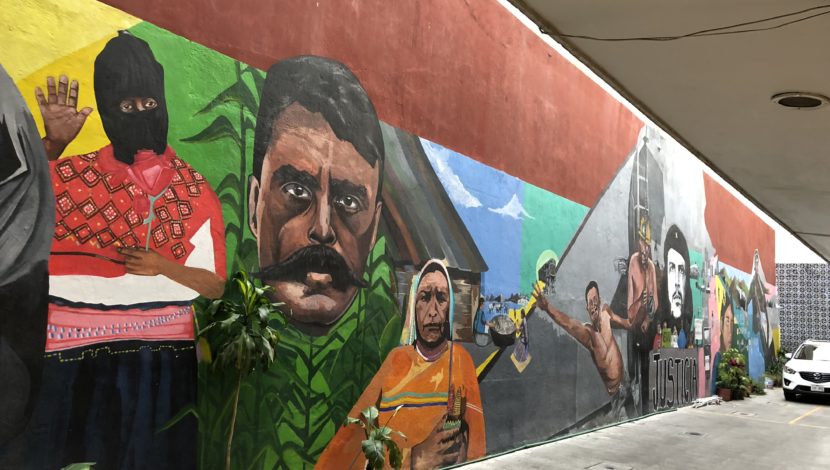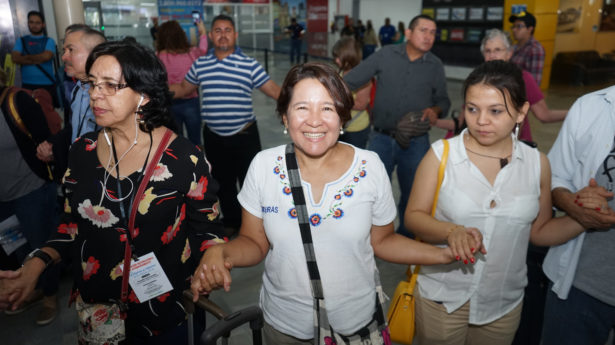The Unitarian Universalist Service Committee advances human rights through grassroots collaborations.
Collaboration Across the Human Rights Movement

By Rachel Gore Freed on October 19, 2018
One of the ways UUSC is able to strategically leverage our resources to support the human rights movement is by collaborating with other funders. We do this by championing the approaches of our grassroot partners and building connections across issue areas, geographies, and practitioners.
As part of this work, UUSC engages in the Human Rights Funder Network (HRFN)—an association of 431 global funders who work together to effectively resource human rights work and movements. The network is a vibrant global learning community where funders can strategize and help advance human rights across the globe.
For the past year, I’ve had the great privilege of serving on the HRFN steering committee where I leverage our voice as a smaller—often more nimble—funder in deep relationship with grassroots movements. I was also incredibly fortunate and inspired to be part of HRFN at a time when its membership has expanded to represent 68 different countries, a time that led to HRFN’s first conference in the global south in Mexico City, and at a time when the network is helping to redefine philanthropy and our community of practice.
Why is this important?
The public narrative on philanthropy has not been patient or kind recently, but this debate is complicated particularly when looking at the impact of resources flowing to international human rights work. Based on self-reported data, the HRFN network provides more than 18,000 grants totaling $1.7 billion per year. While I struggle sometimes with my own privilege as a leader of a global north-based institution and how philanthropy currently depends on capitalism, it’s critical to reframe philanthropy as one way to return resources towards affected communities, to give independent civil society organizations more agency in restrictive environments, and to address global inequities.
HRFN strives to ensure that human rights funders make grantmaking decisions that are informed by—and accountable to—the human rights movement, adaptive, risk-taking, and bolstered by context and evidence. At the heart of this work is a deep belief in and commitment to the pursuit of structural change, and to ensuring the protection and enjoyment of rights guaranteed by the Universal Declaration of Human Rights.
Much of the focus of this year’s conference centered on the role of philanthropy in resourcing social movements and whether grantmaking must adjust to meet new global challenges. It was recognized at the conference that the Freedom to Marry movement succeeded in-part because of a 10-year collaboration across social justice movements and the human rights sector, including the funder community banding together to provide some of the resources the movement needed to succeed. I had the great privilege of spending an entire day with a small group of activists and donors learning together about how deported families are organizing to protect and reclaim their mobility rights and how to reunite with their loved ones.
Returning from the conference, I’m left with a questions and curiosity, which is a great outcome to walk away with from any learning opportunity. In part, I’m thinking about how we in the human rights space can continue to think and collaborate at our intersections and across national lines to combat growing human rights challenges. How can we link climate disasters, economic injustice, and our capitalist system of labor exploitation, with the criminalization of people based on identity? How does a human rights framework fit in? How does one even begin to address the refugee crisis—whether due to forced migration, conflict, rising sea levels, or catastrophic storms? More importantly, how are affected communities already organizing to address these questions, and how can we more effectively support them?
I’m confident that bit by bit we will chip away at this—as an individual in my community, as a leader of my organization, and as a member of this growing network of global human rights thinkers and advocates.
